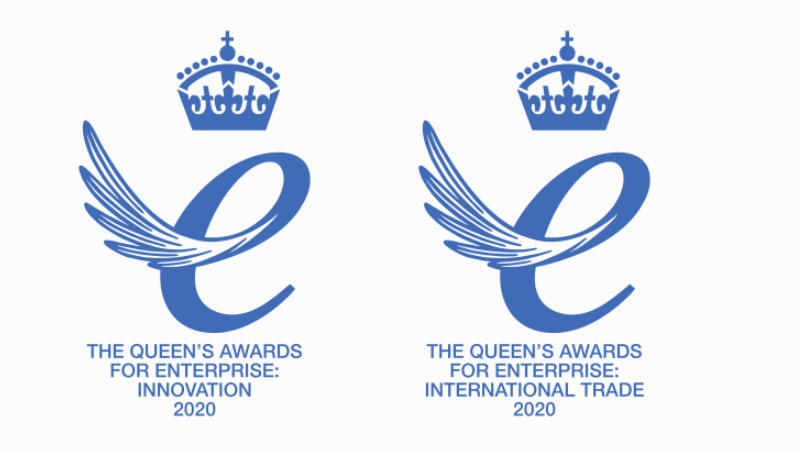The Queen’s Awards are awarded on the Queen’s Birthday each year, and in different times, would include an invitation to a mass gathering at Buckingham Palace. The criteria set by HMG searches for considerable progress sustained over a six year period.
This year, 128 companies received a Queen’s Award for International Trade and 66 companies a Queen’s Award for Innovation. The full list of winners is listed in the Queen’s Awards Press Book.
Netcraft is one of only three companies to receive a Queen’s Award in both categories.
The Queen’s Award for International Trade recognises how during the six year period Netcraft’s business evolved from the internet infrastructure industry to a broader community of banks, financial services and other large enterprises in over 50 countries, including five of the world’s largest companies by market capitalisation and 11 of the top 50 banks worldwide.
The Queen’s Award for Innovation is in respect of Netcraft’s cybercrime disruption services. In the UK these are used by the British Government and seven of the eight constituents of the FTSE-350 Banking index. The same services underpin the growth in exports reflected in the International Trade award, representing a force for good across the whole internet. Netcraft now provides countermeasures against some 75 different forms of cybercrime, and on behalf of customers, disrupts at least a quarter of all phishing attacks worldwide.
Netcraft is a Bath-based internet services company, which provides internet security services, including cybercrime disruption, application security testing, and automated vulnerability scanning. They have explored the internet for a quarter of a century and are an authority on many aspects of the internet.
Mike Prettejohn, Director, Netcraft said:
Although our clients are spread around the world, we recruit locally. Year after year industrial placement students from Bath have made substantial contributions to the services that have won these awards.
Netcraft continues to trade successfully since the advent of coronavirus, and so far has disrupted over 2,000 coronavirus-related cybercrime attacks.

